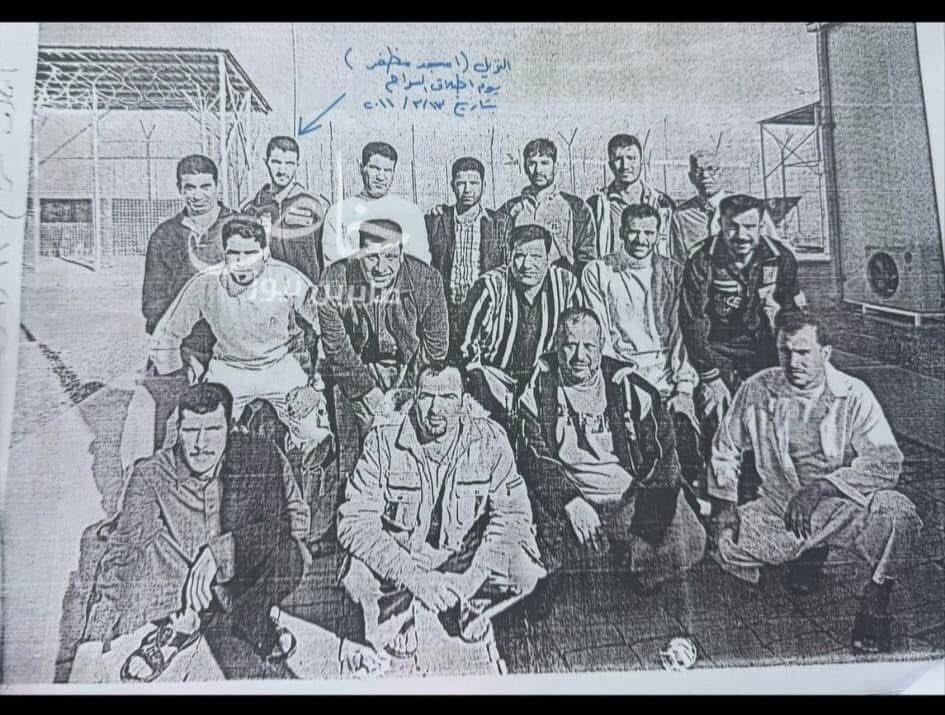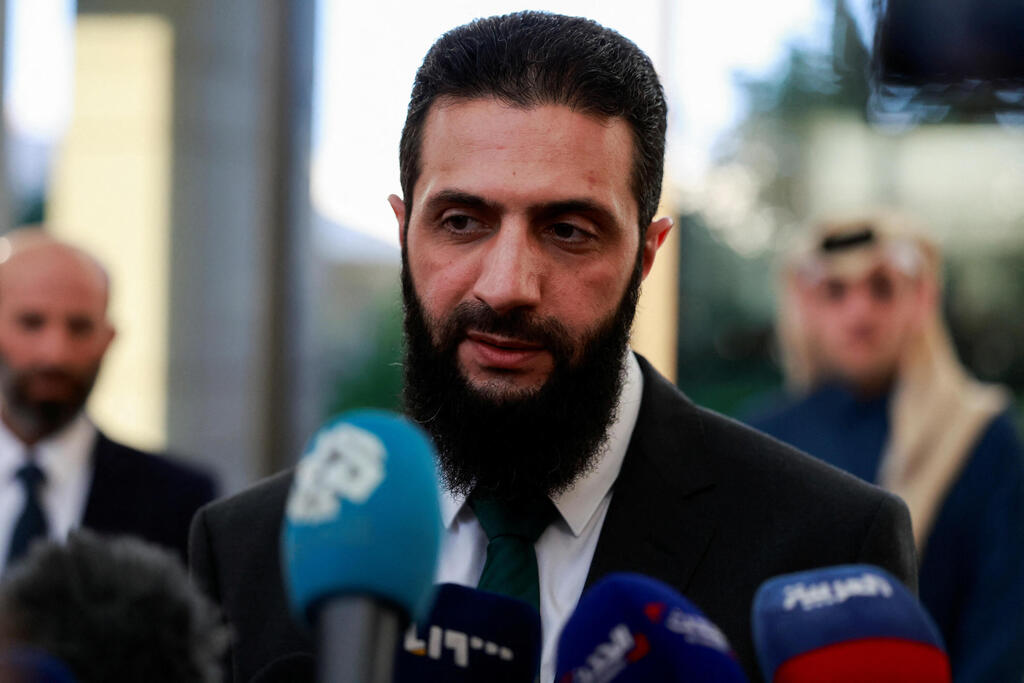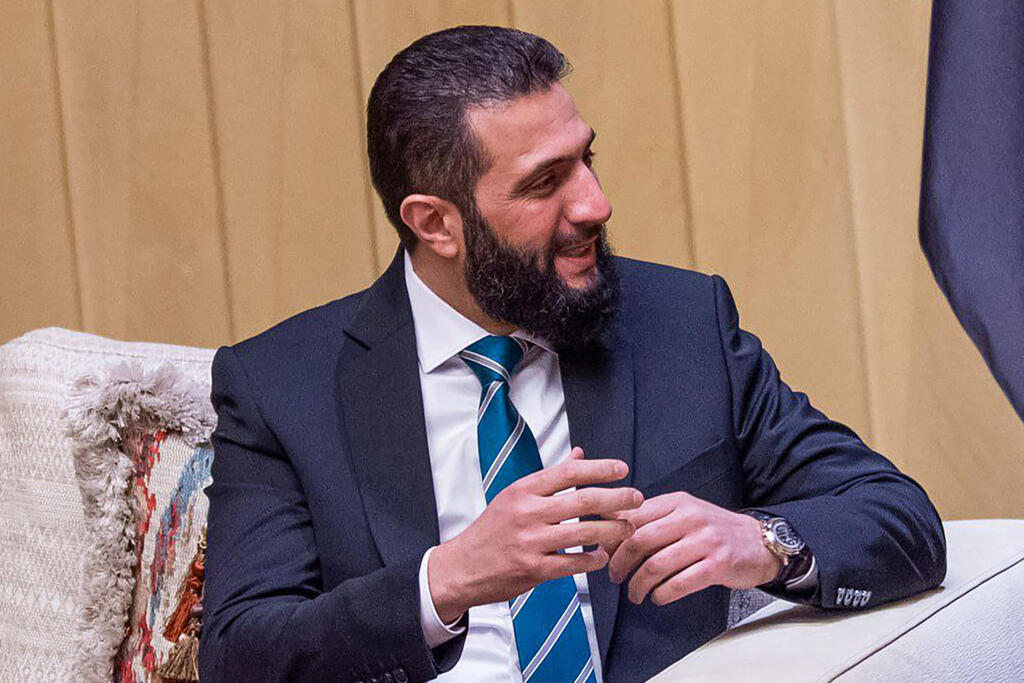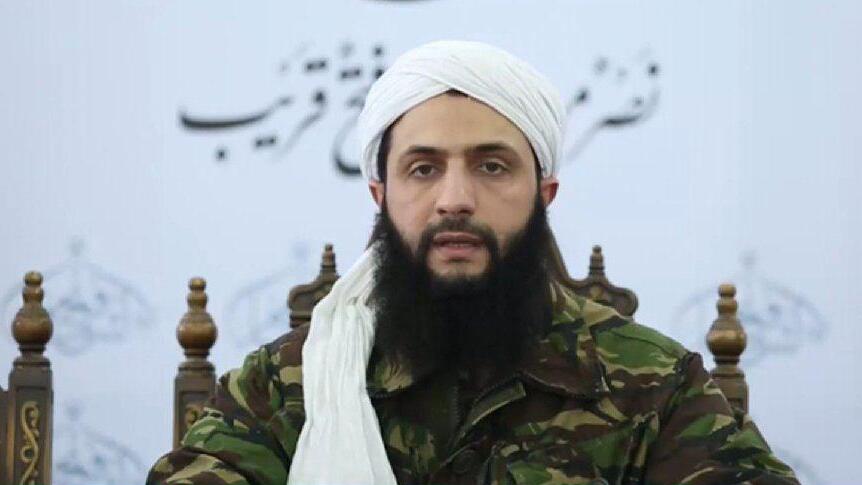Getting your Trinity Audio player ready...
Less than a day after the Iraqi prime minister’s public announcement on Wednesday that Syrian President Ahmad al-Sharaa would attend the upcoming Arab League summit in Baghdad, social media in Iraq lit up with a startling wave of leaked documents and images.
The materials, which The Media Line has independently verified, reveal a little-known chapter of al-Sharaa’s life: his six-year detention in Iraq between 2005 and 2011, under a false identity.
According to the documents, al-Sharaa was arrested on May 14, 2005, by U.S. forces operating in Iraq. He was detained under the alias Amjad Muzafar Hussein Al-Nuaimi and held in the Taji correctional facility, north of Baghdad. The arrest was carried out under a warrant issued by Iraq’s Supreme Judicial Council.
The use of a fake identity allowed al-Sharaa to evade recognition for years. Fluent in the Mosul dialect of Arabic and equipped with a forged Iraqi ID, he managed to convince U.S. inspection teams—often accompanied by Iraqi contractors—that he was a local civilian.
“This was a man who could disappear into any crowd,” Fadel Abu Ragheef, an Iraqi security analyst who reviewed the documents, said. “His ability to blend in saved his life—and shaped his future.”
What does the leak mean?
The documents were released just weeks ahead of the Arab League summit, set for May 17 in Baghdad, where al-Sharaa is expected to make a high-profile appearance—his first as Syria's transitional president following the fall of the Assad regime.
It’s unclear who leaked the documents that revealed these elements of al-Sharaa’s past. Iran is a likely suspect, given its opposition to al-Sharaa’s growing influence and its interest in derailing any political rehabilitation efforts. Iran also retains significant intelligence influence within Iraq.
Alternatively, the leak may have come from within Iraq itself, possibly from factions opposed to engaging with al-Sharaa or seeking to test public and political reactions.
The leak has had a noticeable impact: it undermines al-Sharaa’s credibility, complicates his external relations and damages his public image among his support base in Idlib. It also weakens al-Sharaa’s political positioning at a time when he is trying to present himself as a legitimate political actor.
What’s been revealed about al-Sharaa’s past?
Al-Sharaa arrived in Iraq in 2003, shortly after the U.S.-led invasion. Still in his early twenties, he joined the Saraya Al-Mujahideen armed group, which was formed to resist American forces. Sources from that time describe him as disciplined, reserved, and deeply committed to the cause.
5 View gallery


A leaked photo showing Syrian President Ahmad al-Sharaa during his stint in a prison in Iraq
(Photo: Sabereen News)
His time with the group was cut short by his arrest two years later. But even behind bars, it appears al-Sharaa remained committed to a larger mission. A group photo included in the documents shows him among a lineup of detainees in 2011—just days before his release on March 13 of that year.
Two days later, the Syrian uprising began. With the Syrian revolution erupting, al-Sharaa quickly crossed back into Syria. There, he aligned himself with a number of jihadist factions, including al-Qaida and later the Islamic State group. But his alliances were short-lived. By 2016, al-Sharaa—by then widely known by his nom de guerre Abu Muhammed al-Golani—had severed ties with both groups.
In a widely broadcast 2016 video, he appeared for the first time in public wearing a traditional Arab cloak. Calm and articulate, he announced the formation of a new faction and the formal break with al-Qaida.
His reputation began to shift. From underground militant to regional powerbroker, al-Sharaa had become the de facto leader of Hayat Tahrir al-Sham (HTS), the dominant force in Idlib province—Syria’s last major opposition stronghold.
Residents of Idlib who knew al-Sharaa before his rise to power described a dramatic transformation. Hassan, a young man from the city of Kafr Nabl, recalled when the man known as al-Golani first arrived in town.
“He was quiet, friendly,” Hassan said. “I would see him heading out to the front lines to fight Assad’s forces. He’d smile at everyone, never raised his voice.”
After a while, Hassan said, al-Sharaa was always seen “surrounded by guards and fighters.” “That’s when we realized he wasn’t just another fighter anymore—he was someone important,” he said.
Analyst Abdulrahman Al-Nasser said that al-Sharaa’s leadership marked a turning point in the fragmented Syrian opposition. Under his command, HTS consolidated power in Idlib, establishing a rudimentary government and exerting control over local security, media and even courts.
“Al-Sharaa learned from every phase of his journey,” a regional security expert said. “From insurgent to detainee, from jihadist to nationalist figure—he’s an operator, a survivor.”
Get the Ynetnews app on your smartphone: Google Play: https://bit.ly/4eJ37pE | Apple App Store: https://bit.ly/3ZL7iNv
The biggest shock came just months ago, on December 8, 2024, when opposition forces stormed Damascus. After years of fighting, the Syrian capital fell, with government forces withdrawing from public buildings and streets. The era of Baathist rule—61 years under the party, and 53 under the Assad family—had come to an abrupt end.
On January 29, 2025, Syria’s new transitional government announced a wave of landmark decisions: the dissolution of the Arab Socialist Baath party, the suspension of the Assad-era 2012 constitution, and the abolition of the former regime’s rubber-stamp parliament.
At the center of it all was Ahmad al-Sharaa. The man once imprisoned under a fake name was named Syria’s interim president, with a mandate to oversee the transition toward a new political order.
What’s next for al-Sharaa?
While al-Sharaa’s story resonates with many Syrians who opposed Assad, it also raises questions about the nature of leadership in post-conflict Syria. Some activists have expressed concern about his militant past and the influence of HTS in the new government—although HTS was officially dissolved in January 2025 with the declared intention to be incorporated into the Syrian state.
“He is not a conventional politician,” a Western diplomat familiar with Syria’s transition talks said of al-Sharaa, speaking under condition of anonymity. “His legitimacy comes from the battlefield, not the ballot box. That could complicate efforts to build inclusive institutions.”
Still, others see al-Sharaa’s journey—from the shadows of Iraq’s prisons to the spotlight of regional diplomacy—as symbolic of Syria’s larger struggle for identity, sovereignty and survival.
“Whether you support him or not, you cannot ignore the arc of his story,” a political analyst in Beirut said. “He embodies the chaos, the resilience and the reinvention that define this moment in Syria.”
As the Arab League summit approaches, all eyes will be on al-Sharaa—the man whose past was once hidden in the confines of a prison cell, now seated at the table of Arab leadership.





